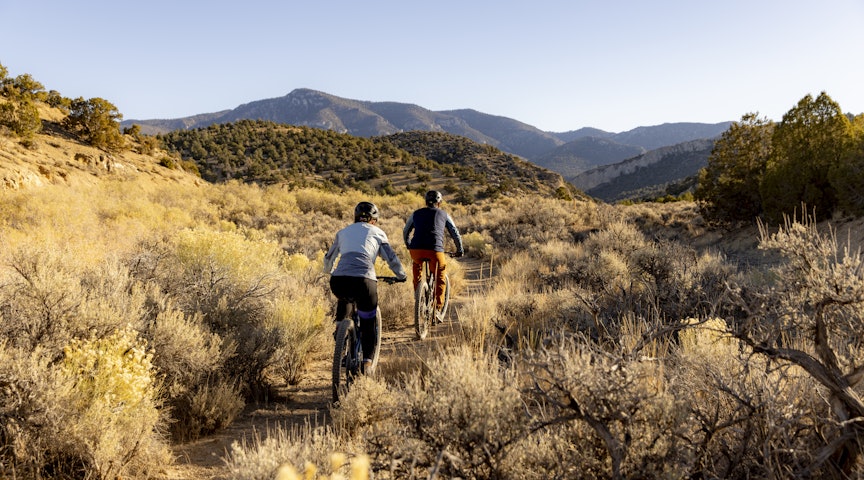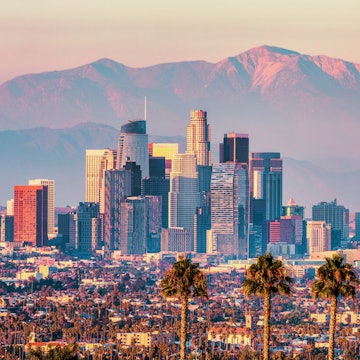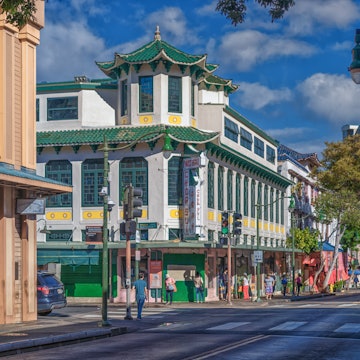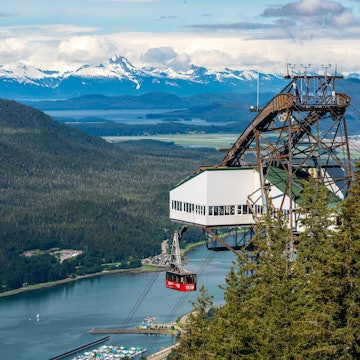

Labor Day weekend will look a little different this year © csfotoimages / Getty Images
Labor Day weekend is here, and it might look a little – or a lot – different than in years past. Traditionally considered the end of the summer season in the US, and the last big travel holiday before the school year begins, this time last year the trade group Airlines for America anticipated a record-breaking 17 million passengers would fly around the first weekend in September.
This year has everything twisted, however. Between the COVID-19 pandemic itself and the broader ripples it’s produced – like the transition to working and schooling from home and international travel restrictions – many travelers are rethinking their approach to summer’s last hurrah.
This year, only 6 million Americans plan to travel by air for Labor Day, according to data from TripIt. And where people are traveling has shifted, too – last year, the top five domestic destinations for Labor Day weekend included Denver, Colorado; Chicago, Illinois; Las Vegas, Nevada; Boston, Massachusetts; and New York, New York. Now the later two destinations have travel restrictions requiring travelers from high risk states quarantine for two weeks on arrival.

In 2020, it looks like vacationers are looking for fun in the sun, a chance to opt outside, or for a citybreak in destinations that have a head start on overcoming the pandemic. The top five domestic destinations this year are Las Vegas, Denver, Orlando, Florida; Chicago, and Seattle, Washington. For Disney fans, Labor Day weekend will be the last before Disney parks scale back their operating hours.
Meanwhile, a full 12% of Labor Day travelers are heading not just to Orlando, but to other cities in the Sunshine State, too. It seems headlines about the increased spread of the coronavirus across the United States’ sunbelt states of Arizona, Florida, Texas and Georgia hasn’t entirely deterred beach-goers. In fact, data from the Bureau of Transportation Statistics shows that residents of Mississippi, Alabama, Arkansas, South Carolina, Tennessee and Texas are staying home the least, though the vast majority of those trips are under twenty five miles.
Of those going further afield, thousands with passports in hand are planning to try their luck in newly reopened Caribbean countries like Aruba and Jamaica, while Mexican locales like Cancun and Los Cabos are proving more popular for Labor Day than in previous years. Although the land border between Mexico and the United States remains closed, individual Mexican states have set their own restrictions on leisure travel, and on passengers arriving from the US by plane.
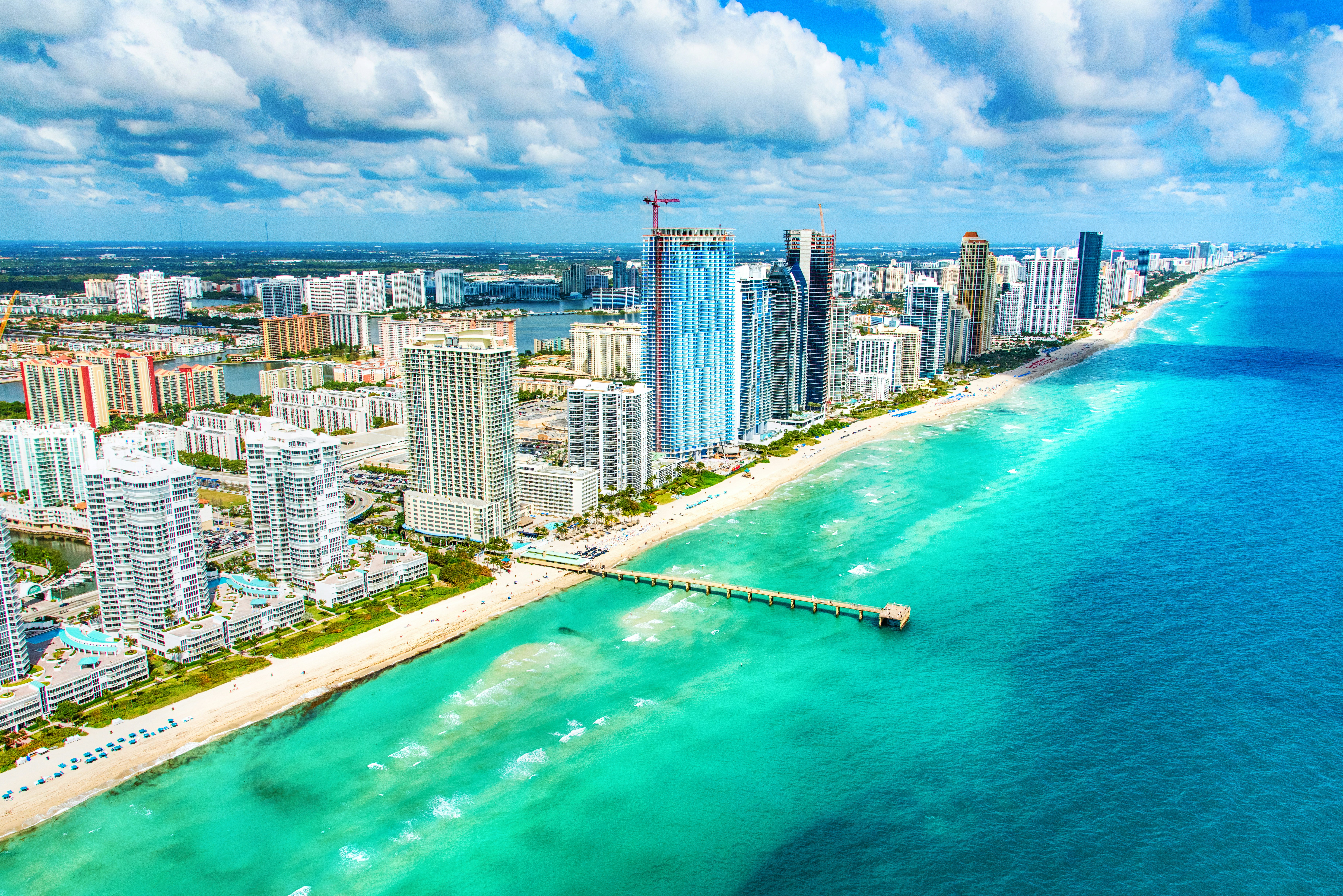
It’s not just the air travel industry indicating Labor Day has Americans ready for a change of scenery after six months of cabin fever. Hotel bookings are up in both Florida and Hawaii, too – although the Aloha state recently pushed its September 1st reopening date back to October, meaning many of those reservations will need to be cancelled or amended.
Not everyone is feeling so ambitious, or so determined to see palm trees they’re willing to navigate the maze of restrictions on US travelers. Plenty of would-be vacationers have curtailed their overseas travel plans for adventures closer to home. And many, especially in the states harder hit by the pandemic, have scrapped their traditional getaways entirely for regional outdoor excursions or local staycations.
“We are staying put,” says Nandita Godbole, who lives in the metro Atlanta, Georgia, area. “We are still not sure how much we want to venture out – because in general, Georgia is bad.”

Amy Cipolla Barnes, also located in the South, says her Labor Day weekend vacation is built around the uncertainty hovering over college campuses across the country right now. She and her partner were already planning to drive from Nashville, Tennessee, to Huntsville, Alabama, to enjoy time with their son, who’s a freshman in college. But the trip might turn into a chance to move him home for the rest of the semester if the campus shuts down early due to the spread of COVID-19.
Meanwhile in the northeast, Bree Shirvell of Mystic, Connecticut, says the structure of their trip has largely stayed the same as in previous years. Her family is headed to Maine, and although they’re aware out-of-state plates can garner the side-eye from locals, she isn’t too concerned.
“Honestly, not much has changed for us. We book a vacation starting the weekend of Labor Day through the next,” said Shirvell. “Last year we flew to Colorado, but it was just by chance that we picked someplace we could drive to pre-pandemic.”

Others are spinning what were supposed to be happy family gatherings into smaller, place-holder vacations. Julie Donnelly-Mattheew of the greater Boston metro area says her sister was supposed to be married on Cape Cod this Labor Day weekend. Now her parents and siblings have decided to retain the house they rented for the occasion and savor their time together, although the wedding is postponed until next year.
“We are all getting tested before the weekend, so we can all hug each other,” said Donnelly-Mattheew. “It will be bittersweet.”
These anecdotes support trends observed by companies in the travel industry like vacation rental platform Vrbo, which notes that more families are skipping city breaks and traditional hotels in favor of spending time together within a day’s drive of where they live, preferably in nature and in accommodations that give everyone plenty of room that they might not have at home.
“Travelers are interested in mountain, lake and beach vacations – 95% of Vrbo traveler demand lately has been in non-urban destinations – and we’ve seen a jump in demand for vacation homes within 500 miles of home, meaning families are opting to drive to their destination,” Vrbo President Jeff Hurst told Lonely Planet. “Ultimately, families want to vacation in a home that’s drivable and provides access to the great outdoors, with the space and privacy to accommodate the whole family comfortably.”

Those road-trippers and vacation house renters may certainly account for a considerable percentage of the some 11 million passengers who booked a flight for Labor Day weekend last year who haven’t purchased a fare in 2020. But a new wave of families may simply be waiting for a less competitive travel weekend – and off-season rates that are just around the corner – to get their kicks, especially since, in many cases, school and work can suddenly now happen wherever there’s WiFi.
Vrbo has even coined the term “flexcations” to describe how families are approaching travel differently now that school and work are putting different demands on people’s time and geographic location. The company cites some 67% of surveyed working parents who want a change of scenery this fall and another 50% surveyed who, as Hurst put it, “believe more flexibility in work and school schedules provides opportunities to travel during the off-peak season.”
The vacation rental platform isn't alone in identifying remote learning as an opportunity for travel-minded families to wander outside the usual limitations of the semester system. The Four Seasons Punta Mita resort in Mexico recently unveiled its Knowledge for All Seasons ‘worldschooling’ program, designed for beachside study, whether you're planning a first week of September abroad or longer.

Meanwhile, those who are staying home are getting creative about how to have fun and stay cool without running into crowds at traditional attractions like movie theaters and water parks. For many, that’s meant spending time outside, and embracing new forms of recreation.
“People are canceling summer trips, they want to stay close to home, and they’re looking for an activity they can do outdoors while social distancing with their families,” Jackie Baumgarten, founder and CEO of Boatsetter, told the Huffington Post in early August.
Boatsetter (think AirBnb for boats) has seen rental rates rise 74% even as airfare bookings have fallen. And as Baumgarten told the Huffington Post, 95% of Americans live an hour or less from a waterway accessible by boat, making this one of the easiest ways to enjoy nature at a distance.
For those who already considered a day on the lake a traditional part of summer, adopting the kind of flexibility Hurst mentioned is key to saving money and staying safe. Kristin Luna, who lives with her family in the Nashville metro area, says they rent a pontoon boat every Labor Day weekend to share with her cousins on Tims Ford Lake. But this year, they’re making some adjustments.

“To avoid crowds and observe social-distancing measures — which sure, are easy to do on the lake, but still, we want to be as responsible as we can — we've all taken the Friday before Labor Day off and are going to enjoy our outdoor time then instead of the actual weekend,” explained Luna. “It's the perfect time, too, with kids not in physical school and all of us working remotely anyway.”
One thing's for sure, whether your Labor Day looks like a beach chair in Cancun, a rented RV in Washington State, a back yard movie night at home, or a much-anticipated vacation home booking for a few weeks later, safety still comes first. The latest research shows masks are highly effective at reducing transmission, especially if everyone is wearing them in crowded indoor spaces like airports or train stations. Finding a mask you like, that's attractive and comfortable, can go a long way toward a smooth vacation.
If you're flying to your long weekend destination, there are certain steps you can take to reduce your risk of contracting COVID-19, for example. For those planning road trips, making sure your car is stocked with a few essentials can help give you peace of mind. And it never hurts to ask the experts for advice on how to make your road trip as safe as possible.
*Our editors independently select the best products to help you have amazing travel experiences. If you purchase through links on our site, Lonely Planet may earn a commission from the retailer.
You may also like:
This transatlantic airline will provide free COVID-19 insurance to all passengers
8 US destinations perfect for a boat trip
From stagecoach to motorcoach, a history of RVs in the USA
This article was originally published in August 2020 and updated in September 2020.
Take your United States (USA) trip with Lonely Planet Journeys
Time to book that trip to United States (USA)
Lonely Planet Journeys takes you there with fully customizable trips to top destinations–all crafted by our local experts.
